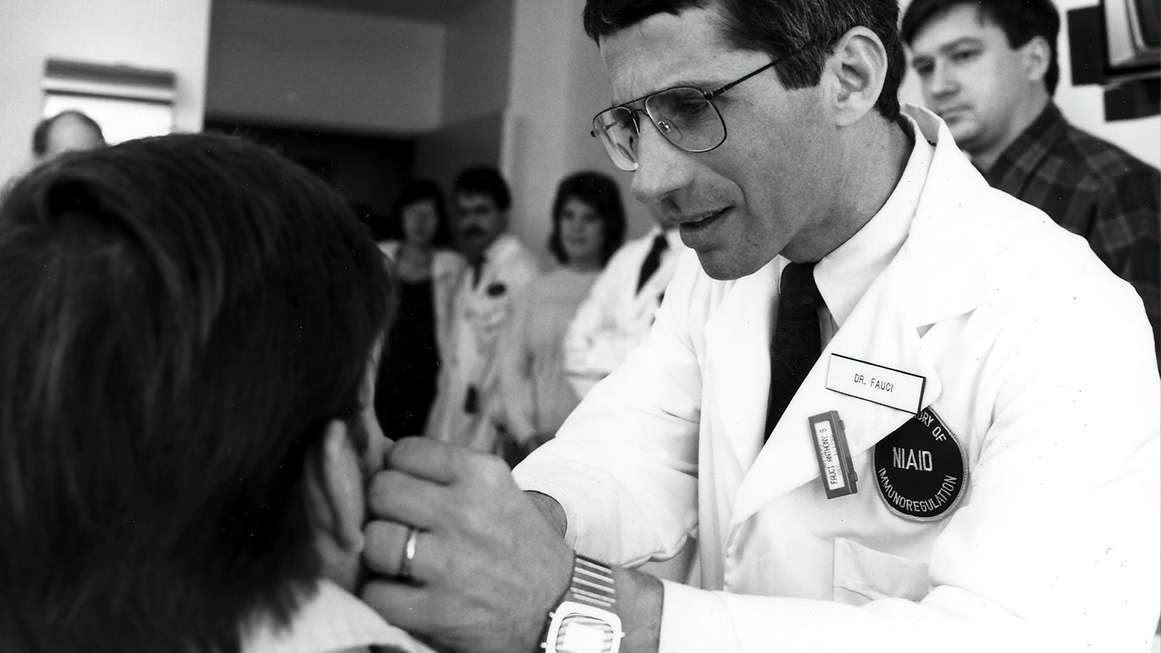Anthony Fauci: The Man Who Believed He Embodied Science
In “On Call: A Doctor’s Journey in Public Service,” Anthony Fauci presents a memoir that reflects both his dedication to public health and the complexity of his administrative legacy. The memoir illustrates Fauci’s deep commitment to addressing the HIV/AIDS crisis, showcasing moments of empathy and personal connection with patients, particularly during the early years of the epidemic. However, the narrative also reveals significant omissions concerning his failures in administration and public health policy, suggesting a Greek tragedy underscored by intelligence but marred by hubris. While Fauci clearly articulates a desire to combat AIDS and advocates for the importance of ending the disease, he glosses over critical missteps, such as early miscommunications about HIV transmission that led to societal panic.
Fauci’s journey is marked by his ability to garner support for HIV research, redefining public perceptions and influencing government funding. His memoir reveals a man who was immensely capable of negotiating the complexities of bureaucracy while navigating activism from the HIV community, exemplified by his relationship with AIDS activist Larry Kramer. Fauci’s ability to engage with critics and re-direct activist anger into productive avenues secured substantial funding for research; yet, his treatment of dissenting scientists, particularly those who opposed his views, raises ethical concerns. The thorough discrediting of scientist Peter Duesberg, who incorrectly posited that HIV was not the cause of AIDS, illustrates a retaliatory approach rather than a spirit of scientific debate, establishing a chilling atmosphere around critiques of his policies.
Despite his successes, Fauci’s mixed legacy in HIV/AIDS extended into his tenure overseeing biodefense, where he promoted controversial research practices, including gain-of-function studies on avian influenza. His administration’s support for such experiments, raising ethical debates about the risks versus rewards of enhancing viral pathogens, positions him at the center of ongoing discussions about public health preparedness and laboratory safety. Furthermore, the subsequent emergence of COVID-19 raises serious questions about the ramifications of such research and whether his strategies inadvertently contributed to the global pandemic that followed. In his memoir, Fauci claims to have pursued knowledge through these experiments while downplaying the potential fallout, a narrative many find unconvincing in light of the pandemic’s devastation.
The Covid-19 crisis highlighted another chapter of Fauci’s controversial legacy, where he served as a key adviser to both President Trump and President Biden. The administration’s actions leading to nationwide lockdowns and school closures, primarily influenced by Fauci’s recommendations, resulted in unintended consequences including economic turmoil and disruption of children’s education. In his memoir, he attempts to separate himself from fault during this phase, suggesting the limits of his power despite having significant influence over critical policy decisions. This disconnect raises skepticism about his accountability, especially as he boasts of his advisory roles without grappling with the negative outcomes that emerged from the policies recommended.
In discussing the Great Barrington Declaration—a policy advocating for focused protection of vulnerable populations and lifting lockdown measures—Fauci dismisses the document and its authors, accusing them of promoting harmful strategies. He mischaracterizes their recommendations as calls to allow the virus to spread unchecked, demonstrating a stark rejection of alternative perspectives. His reaction not only stifled critical discourse but also served to legitimize ongoing lockdown policies, further complicating the narrative of public health response during COVID-19. Comparisons to successful strategies employed in other countries, such as Sweden, stand starkly at odds with Fauci’s policies, suggesting that his approach lacked sufficient consideration of differing epidemiological outcomes.
Near the conclusion of his memoir, Fauci acknowledges the need for society to adapt to the reality of living with COVID-19, which reflects a reluctant admission of the limitations of previous strategies. As he grapples with the enduring impacts of the pandemic and the need for a balanced understanding of public health challenges, his reflections are tempered by a backdrop of considerable societal harm—both from the virus itself and from the wide-ranging repercussions of health policies he influenced. While Fauci’s intellectual contributions to HIV treatment are commendable, the memoir serves as a cautionary tale regarding the concentration of power and the potential for hubris to undermine public trust and health outcomes.
Ultimately, Anthony Fauci’s memoir, while a testament to his lifelong dedication to public health, paints an incomplete picture of his career. While he deserves recognition for important advancements in HIV research and treatment, the significant controversies and failures in policy response during vital times cannot be overlooked. Fauci’s narrative strategy seems aimed at steering public perception towards a heroic portrayal, yet the reality reflects a complicated interplay of achievements and missteps that ensure his legacy will be viewed through a multifaceted lens. The breadth of Fauci’s influence underlines the importance of ethical responsibility and the dangers of unchecked authority in public health leadership, reinforcing lessons about the necessity of transparency and dialogue in scientific discourse and policy formulation.
Share this content:












Post Comment